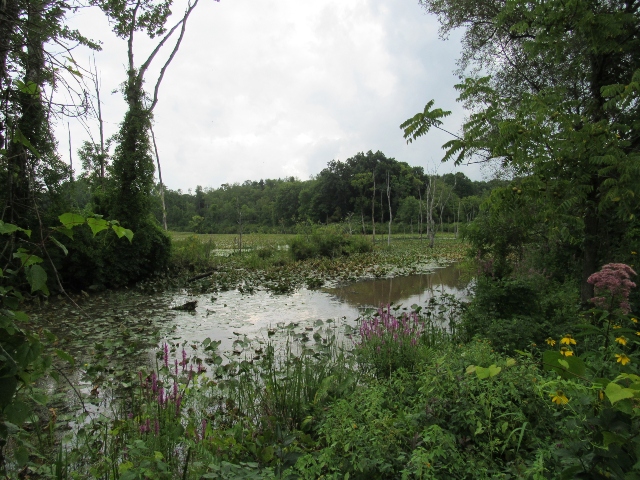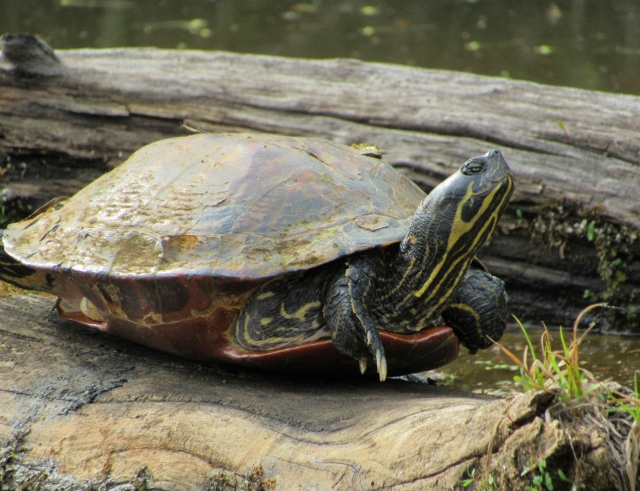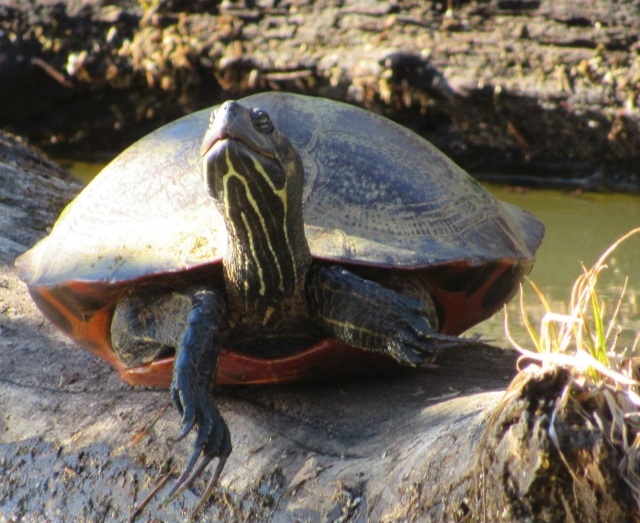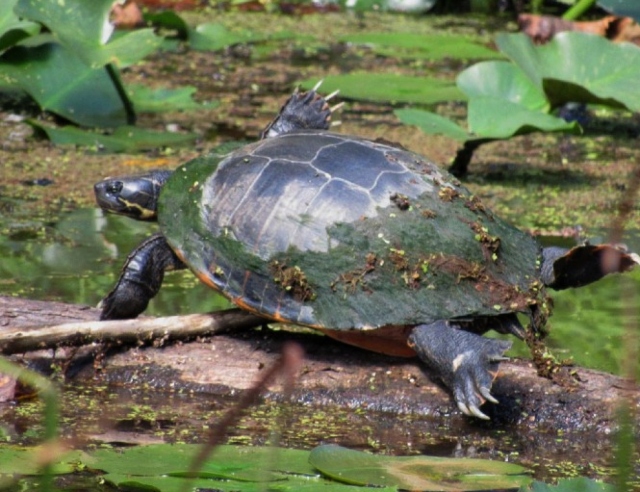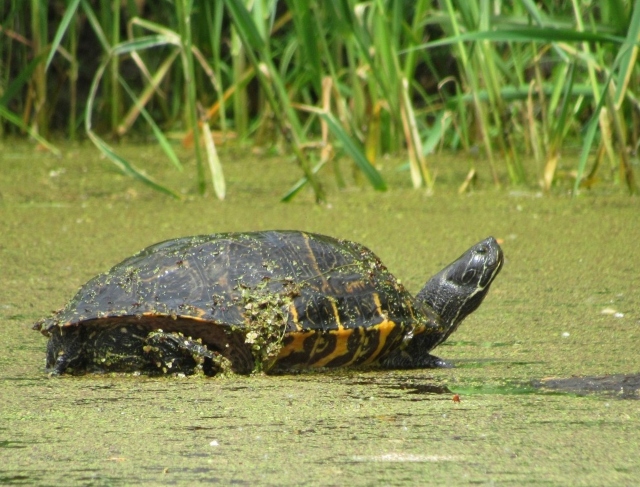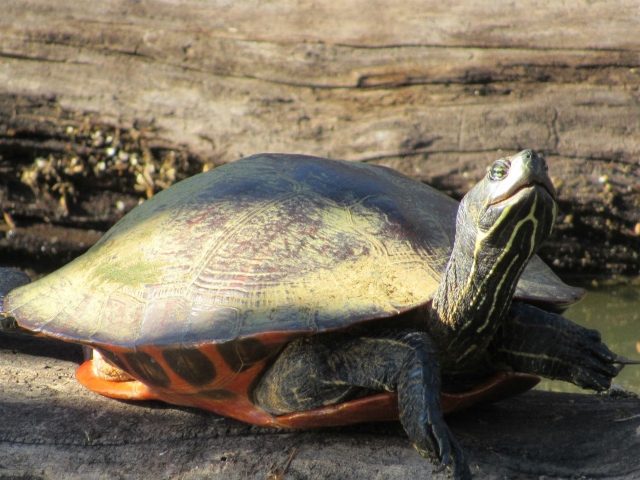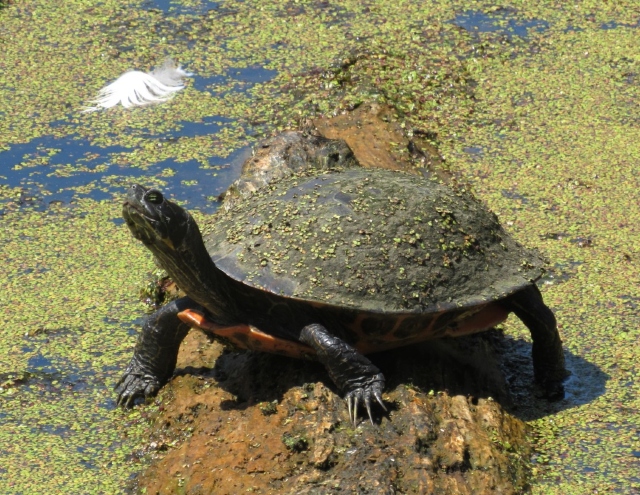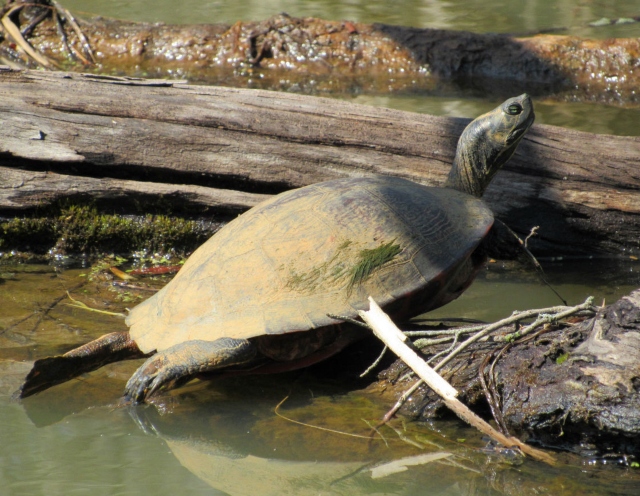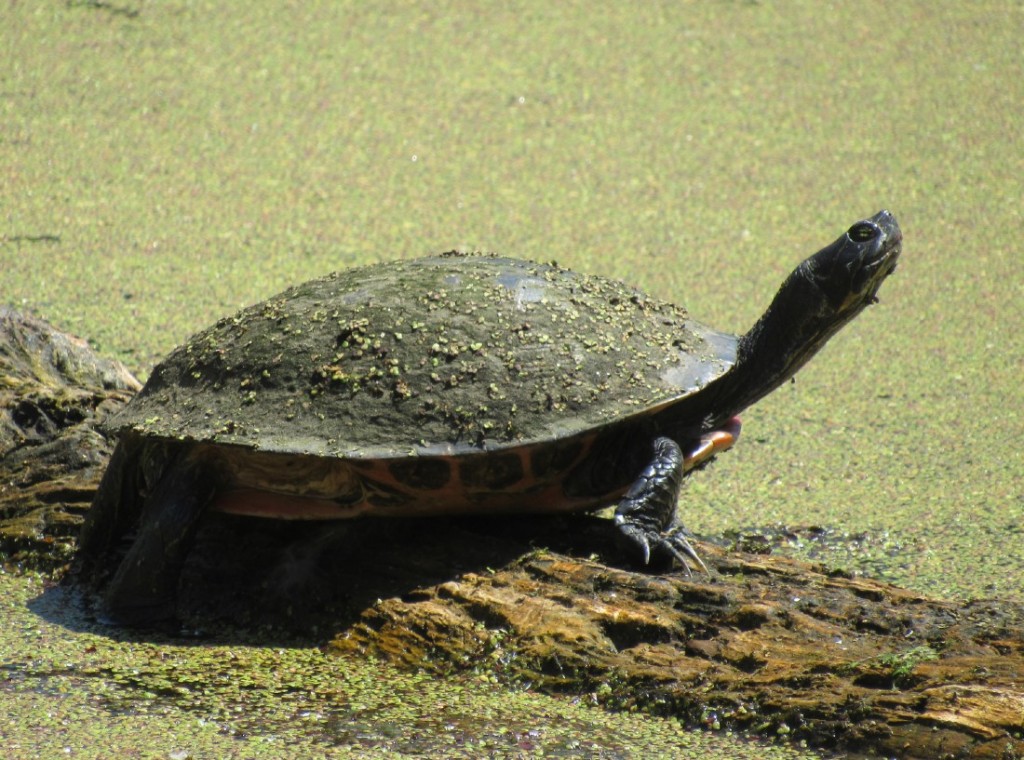This is an aquatic turtle with a dark, highly domed shell and a distinctive red belly. It can be found basking along the edges of ponds, streams and rivers throughout the Potomac River and in coastal portions of Maryland and Virginia.
They are not native to Ohio, but I frequently see them in Cuyahoga Valley National Park. These examples are probably released pets.
Red-bellied Cooters are also called Redbelly Turtles. They get their name from their reddish plastron (the underside of their shell).
This reptile is usually found in areas with deep, fast-moving water, with a muddy bottom and lots of aquatic vegetation. Red-bellied Cooters will sun themselves on rocks and logs to control body temperature, but will disappear into the water when alarmed. In Winter, this turtle hibernates in the mud at the bottom of rivers.
Males can have a shell length of 10 to 12 inches long; while females have shell lengths of 11 to 13-1/2 inches. They can weigh up to 12-1/2 pounds. Red-bellied Cooters are estimated to live more than 50 years. Females reach maturity at 13 to 20 years, while males reach maturity at a younger age.
Females begin nesting activity from late May to early June. They typically nest within 300 feet of the water’s edge. Their nest holes are dug at about four inches deep. This species typically lays 10 to 20 eggs that hatch in 70 to 80 days.
Like some other species of turtles, Red-bellied Cooters have temperature-dependent sex determination. Nests with warmer temperatures produce females, while cooler nests produce males.
The diet for this species is herbaceous (they consume only vegetative matter), consisting of submergent aquatic macrophytes, such as hydrilla, brushy pondweed, eel-grass, arrowhead, and mud plantain.
Although it does not belong in my home state of Ohio, it’s always a neat experience to come across one of these impressive reptiles while out hiking.

